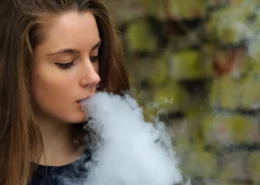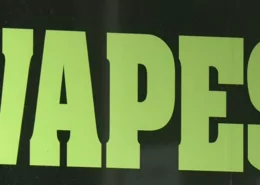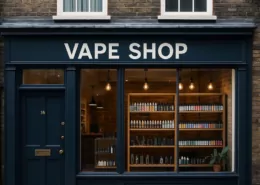Legal Age for Vaping: What Parents Must Know
In a world increasingly conscious about health, vaping has become a popular trend, particularly in the United Kingdom. Many perceive it as a less harmful alternative to the detrimental habit of traditional smoking. As a result, an increasing number of smokers turn to vape to quit cigarettes effectively, and this shift is undoubtedly a step towards a healthier lifestyle. However, alongside this positive trend, an alarming surge in underage vaping has been observed. With children and young individuals being exposed to potential hazards due to this activity, it becomes crucial for parents and guardians to possess a thorough understanding and take timely action. Let’s delve into the matter to grasp it better.
Increase in Underage Vaping
In 2022, it was reported that around 15% of the UK’s youth aged 11-17 had tried vaping at least once. Of these, only 7% were identified as regular users. While the majority are not habitual vapers, these statistics underscore an undeniable shift in the behavioural pattern of our young generation. An important question arises here – what exactly is behind this shift? And more importantly, how can we ensure that the primary purpose of vaping, which is to act as a less harmful alternative to smoking, is not undermined by this trend?
Is it merely the enticing marketing techniques employed by vape manufacturers, or are there deeper societal factors at play? These are questions we must explore to effectively address and curtail this burgeoning issue.
Legal Age for Vaping in the UK
The legal age for vaping in the UK is 18 years, identical to that for smoking. This age restriction is put in place keeping in mind the physical and mental development of individuals and the potential impact of nicotine on them. The law strictly forbids the sale of nicotine-containing products, such as vape juice and devices, to individuals under this age. Any violation of this regulation is liable for severe legal repercussions.
However, despite such clear directives, instances have been observed where some retailers are found guilty of violating these rules. By selling these products to underage customers, they contribute significantly to the surge in underage vapers. This not only puts young people at risk but also raises questions about the efficacy of law enforcement in this domain.
Read more:
The Impact of Underage Vaping
Nicotine, the primary constituent of most vaping products, is known to be harmful for those under the age of 18. It can have severe physical and mental impacts on underage individuals, potentially affecting their development and future health. Underage vaping could potentially interfere with cognitive development and exposes users to harmful ingredients present in illicit vapes and E-Liquids, which are often purchased due to their cheaper price. The impact extends beyond the physical realm, potentially leading to a dependence on nicotine, hampering academic performance, and causing behavioural changes.
What’s Causing This Spike?
Despite the legal age for vaping in the UK being 18, the reality on the ground presents a different picture. Underage vaping continues to be a concern, demanding immediate attention and intervention. A complex interplay of factors contributes to this alarming situation. These include attractive packaging and sweet flavours targeted at youngsters, coupled with the increased availability of vape products in stores and supermarkets. The easy accessibility of these products leads to a situation where vaping becomes an easily attainable object of curiosity for the youth.
The recent influx of illegal vapes, which boast high puff counts and are easily available, only exacerbates the situation. These products not only violate the legal framework but also pose a severe health risk as their quality and ingredients are often questionable.
The Implication for the Vaping Industry
This trend, if unchecked, could have long-term repercussions for the vaping industry. Stricter regulations and penalties, a decrease in sales due to reduced consumer trust, and heightened public backlash are among the potential outcomes. It is incumbent on the industry to ensure that vape products are only sold to individuals above the age of 18. Manufacturers should prioritize ethical advertising practices and refrain from creating products that might appeal to younger audiences. This will not only ensure compliance with laws but will also help to establish the industry’s commitment to public health.
The Role of Parents in Combating Underage Vaping
Parents play a pivotal role in curbing underage vaping. Through open and honest dialogue, they can educate their children about potential health risks associated with vaping. Ensuring that their children understand the legal age for smoking and vaping will help reduce their exposure to nicotine products.
However, merely providing information might not always be sufficient. Parents should also observe their child’s behaviour and signs of possible vaping usage. If they suspect their child is already involved in vaping, providing necessary support, care, and guidance is crucial. This could involve consulting with health professionals, seeking counselling services, or discussing the matter with school authorities.
Wrapping Up
In conclusion, underage vaping is a grave issue that needs immediate attention. As parents, teachers, and responsible members of society, the onus lies on us to ensure that our children are well-educated about the risks associated with vaping and the legal age limit for vaping in the UK. By doing so, we can not only mitigate the number of young vapers but also ensure that the broader objective of vaping – to provide a safer alternative to smoking – is not jeopardized. The goal is to ensure the safe and responsible use of vaping as an aid for those seeking to quit smoking, while also safeguarding our younger generation from potential harm.
- Russia’s Vape Market: Inside the Battle for Control - August 8, 2025
- Brazil: Paraná Bill to Add Vaping to “No Smoking” Signs - August 8, 2025
- Celebrate with EightVape: 10 Lucky Winners Get Free Orders or $100 Gift Cards - August 8, 2025








